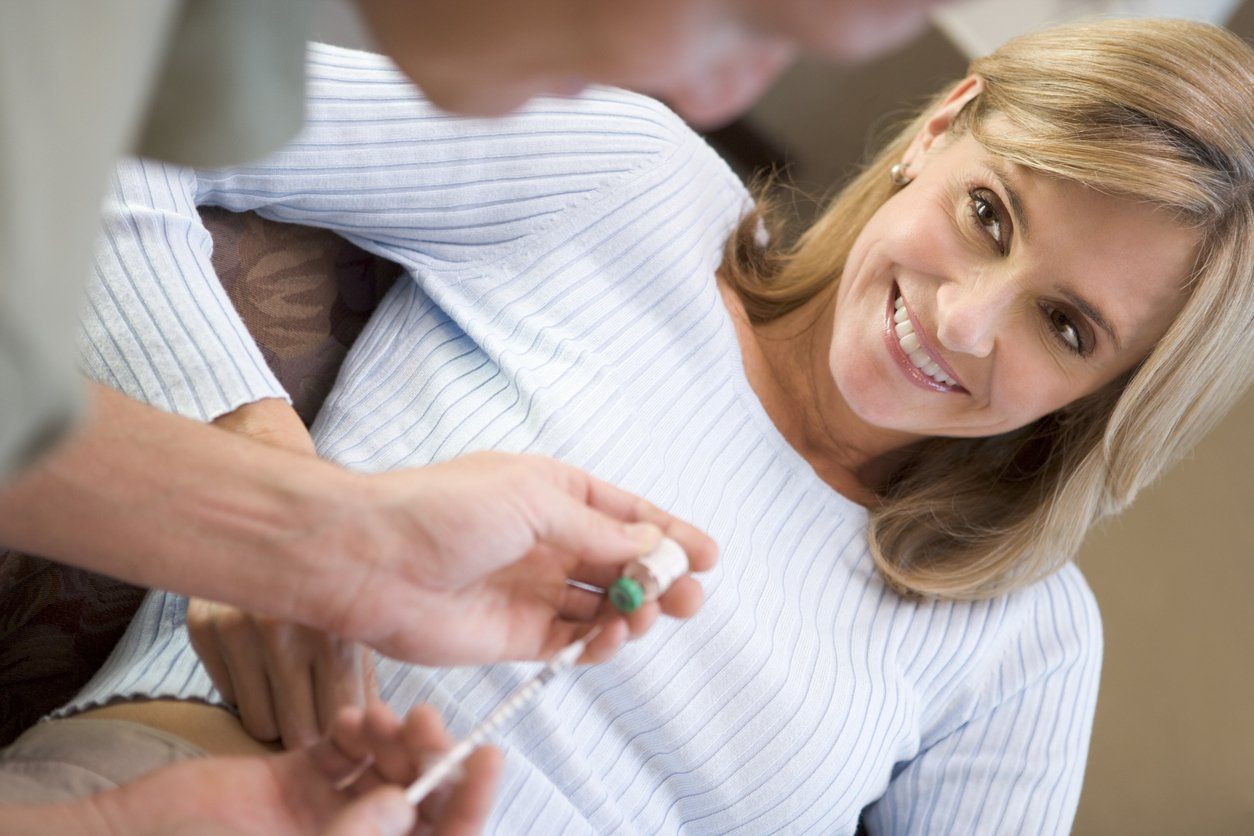Infertility Treatments in Conway, Arkansas
Conway Women's Health Center
Infertility Specialists
Our experienced team of specialists is dedicated to helping you navigate the complexities of infertility with compassionate care and personalized plans. We are committed to assisting you on your journey to parenthood, offering hope and expert guidance every step of the way.

Clomid
- If It has been determined that you are not ovulating, you may require a medication to help you do so. This medication is called Clomid.
- There are no significant risks associated with taking clomid except for the increased risk of having a twin pregnancy. The average women’s risk of having a twin pregnancy is approximately 1/300. Your risk on clomid is approximately 1/15. Other rare, mild side effects include hot flashes and seeing spots.
- Not everyone that is placed on clomid achieves a pregnancy. There may still be other factors involved with your infertility. However, of the women who are going to get pregnant, 75% do so in just the first three months.
- Clomid comes in a 50 mg tablet. You will be started on a regimen of one tablet a day just for five days of the month on days 3-7. If this is not successful in making you ovulate, the next month you will take two tablets a day and the next month three and so on until we have achieved ovulation.
- We will know if you are ovulating by obtaining your progesterone level on days 20-22. It is extremely important that you make this appointment to have your blood drawn. If we do not have your progesterone level, then we do not know what dose to give you the following month. We will call you a few days after you have had your blood drawn to tell you the result.
- We cannot start your clomid each month until you have a menses. However, some women who are not ovulating do not have regular menses. If you have not started by day 35, then you should come in for a pregnancy test. If this is negative, we will give you some medicine (Provera or Prometrium) to make you have a menses so that we may start the next month of Clomid.
Mid Luteal Progesterone Levels and Ovulation
OVULATION: In most females, when conditions are ideal, an egg is released from your ovary at mid-cycle. This process is called ovulation. Usually, ovulation occurs around day 14 of your cycle, with the egg being capable of fertilization only for approximately 24 hours after that. After ovulation, a hormone called progesterone is formed by your ovaries. Your blood levels of progesterone peak around days 20-22, which is when we will be measuring it. Please call your Arkansas fertility clinic with the start of your cycle to schedule this test.
PCT
- As part your infertility evaluation, we need to perform a post-coital test. This test evaluates whether the cervical mucus is adequate for the sperm to swim through it and into the uterus.
- This test is simple and painless. It is similar to a pap test.
- The test needs to be done soon after your menstruation, around days 8-13 of your cycle. The reason for this is that the cervical mucus is only favorable for the sperm a few days prior to ovulation.
- Once I have informed you that you are ready to perform the PCT, you will schedule it by calling our clinic when you begin your menstruation. We will make sure that your appointment will be at the right cycle day.
- The morning of the test you should have intercourse between 1-5 hours prior to our appointment time. After intercourse, you may shower if you wish, but please do not tub bath or use a douche.
- To perform the test, I simply remove a small amount of mucus from your cervix and examine it under a microscope to evaluate the number and motility of the sperm.
HSG
- The HSG is an x-ray of your uterus and tubes. It will help to determine whether your tubes are open.
- Once I have informed you that you are ready to perform the HSG, you will schedule it by calling our clinic when you begin your menstruation. We would like to do the test after your menses has stopped, but before ovulation, i.e. cycle days 9-12.
- The HSG will be done in the radiology department. You have to check in through admissions 30 minutes prior to your scheduled test time.
- To perform the test, I will place a small catheter into your cervix and inject a radiopaque dye that goes into your uterus and your fallopian tubes. The object of the test is to observe the dye as it fills the uterus and then goes through the tubes, spilling into the abdominal cavity.
- When the dye is first injected, you may feel some discomfort similar to menstrual cramps. These usually only last for a few minutes and then will subside. To decrease your discomfort, it will be helpful to take some Ibuprofen (advil or motrin) prior to your test.
Semen Analysis
- As part of your infertility evaluation, it is necessary to evaluate the male’s semen to assure that enough and adequate sperm are present to fertilize the egg.
- It may be necessary to obtain more than one sample especially if the first one is abnormal.
- Abstain from intercourse for at least 24 hours prior to collecting the sample. Remember it takes a male 36 hours to build up his sperm count after each ejaculation.
- We recommend home testing. Testing kits can be found at pharmacies or online. Feel free to call us if you have questions regarding this recommendation.
IUI - Intrauterine Insemination or Artificial Insemination
After evaluation, if it is determined by your provider that you are a candidate for IUI we can proceed with this procedure in our clinic. Patients need to call on the first day of their cycle to determine if IUI is an option that month. Medications include Clomid, Repronex to stimulate eggs or follicles, and Ovidrel to induce ovulation. Ultrasounds are schedule on cycle days 10 and 12 and insemination is usually planned for cycle day 14.
Infertility General Information
MALE EVALUATION
Probably the easiest part of the evaluation is the testing of the male. In most cases by obtaining a semen analysis we are able to determine whether the male has a significant problem or not.
FEMALE EVALUATION
Evaluation of the female is somewhat more involved than the male. Almost all of your tests have to be done at a certain time in your cycle. Remember, cycle day number one is the day you begin your menses. Your evaluation will involve the following:
- A complete physical examination to include a pelvic examination and pap smear.
- Routine laboratory tests to include your hemoglobin, blood chemistries, and tests to evaluate your thyroid gland.
- OVULATION: We need to assess whether you are ovulating or not. In most females, when conditions are ideal, an egg is released from your ovary at mid-cycle. This process is called ovulation. Usually, ovulation occurs around day 14 of your cycle, with the egg being capable of fertilization only for approximately 24 hours after that. After ovulation, a hormone called progesterone is formed by your ovaries. Your blood levels of progesterone peak around days 20-22, which is when we will be measuring it.
- HSG: PCT: The cervix is the entrance into the uterus. Once sperm is in the vagina, it must swim through the mucus produced by your cervix to get into the uterus and tubes. Some women do not make enough mucus and other women have mucus that actually kills their husband’s sperm. To test for this, we will be performing a post-coital test (PCT).
- SURGERY: For some women, all the above tests will be done but yet nothing will be found as a cause of her infertility. At that time, we will discuss the possibility of performing a diagnostic laparoscopy. This is a minor surgical procedure that involves placing a telescope through your navel to look at your pelvic organs. Causes for infertility that we may find at the time include endometriosis and adhesions (scar tissue).
